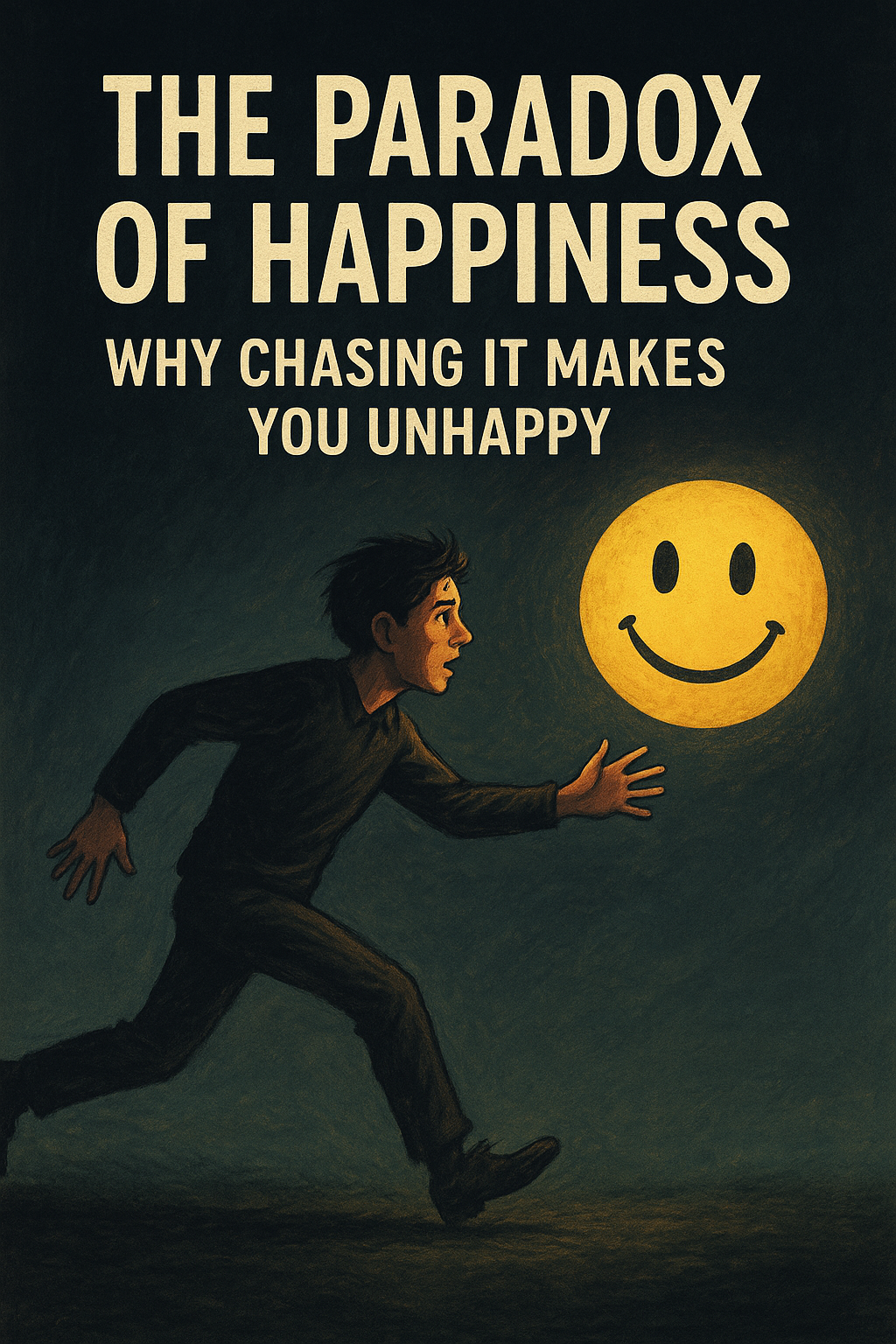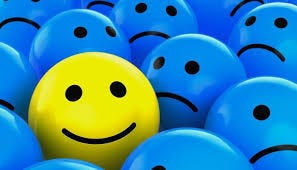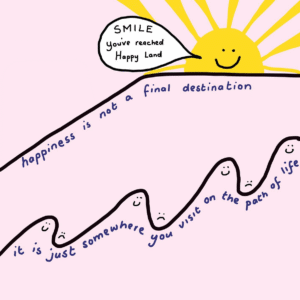
Zahra

Happiness. That elusive, glittering prize we are all supposedly racing toward. Yet, the harder we chase it, the more it seems to slip through our fingers. I’ve noticed it in myself, in friends, and in countless strangers scrolling endlessly on social media, seeking the perfect life, the perfect job, the perfect moment. But somewhere along the way, I began to realize something strange: maybe happiness isn’t meant to be chased at all. Maybe, in fact, the very act of chasing it makes us profoundly, ironically unhappy.
We live in a world that has turned happiness into a commodity. Advertisements promise it in a bottle of soda, in a luxurious car, in a weekend getaway. Social media shows highlight reels of smiling faces, perfect bodies, and exotic vacations. And we, as humans, have taken the bait. We scroll, compare, and then feel a gnawing dissatisfaction that never existed before. But what if the problem isn’t that we lack happiness; but that we are chasing it the wrong way?
I’ve always been fascinated by the subtle, almost invisible ways this paradox manifests in daily life. Take my mornings, for example. I wake up, determined to have a “productive, happy day.” I plan my workout, my reading, my meals, even my mood. I chase this idea of perfect happiness like it’s a finish line I can cross. And by the time evening rolls around, I often find myself exhausted, frustrated, and strangely empty. The harder I chase it, the further away it seems.
Psychologists call this the “Hedonic Treadmill.” It’s a simple concept but profoundly revealing. We humans have this bizarre ability to return to a baseline level of happiness regardless of positive or negative changes in our lives. Promotions, new relationships, fancy gadgets—they give a temporary lift, sure. But soon enough, the excitement fades, and we are back to square one, still yearning, still unsatisfied. Chasing happiness in the form of achievements or possessions is like trying to fill a bucket with a hole in the bottom; it leaks faster than you can pour.
The real paradox emerges when we consider the subtle ways the pursuit itself changes us. When happiness is framed as a goal, it becomes conditional: I’ll be happy when… I achieve X, when people like me, when I have enough money, when I look a certain way. And suddenly, happiness is no longer a natural state; it is a metric of success. This turns life into a series of checks on an invisible scoreboard, and the joy we are seeking starts to feel like pressure. Ironically, the very thing we pursue becomes a source of stress.
I once read a fascinating study about this. Researchers asked participants to focus solely on trying to feel happy over a period of time. Surprisingly, many of them reported feeling less happy than before. The effort to manufacture joy created anxiety, a sense of failure, and self-criticism. In essence, the pursuit of happiness can backfire because it sets expectations that reality inevitably cannot meet. Happiness, it seems, thrives not when demanded, but when allowed.
So, what is the alternative? If chasing happiness is a trap, how do we find it without turning life into a checklist? I’ve discovered that happiness often emerges when we stop focusing on it entirely. It sneaks in when we are fully immersed in the moment; helping a stranger, laughing at something absurd, creating art for no one but ourselves, even just breathing deeply while watching the sunset. It’s a side effect, not a goal.
This shift in perspective is subtle but radical. Instead of saying, “I need to be happy,” we say, “I will live fully, authentically, and curiously, and let happiness come along as it will.” When we stop measuring life by a happiness quota, we open ourselves to the richness of ordinary moments. A rainy afternoon, a quiet cup of tea, a genuine conversation with a friend; these small, seemingly mundane experiences often bring more lasting joy than any milestone achievement ever could.
Another aspect of the paradox is gratitude. People who actively chase happiness often overlook what they already have. There’s a strange irony here: the pursuit of future happiness blinds us to the happiness present in the moment. Gratitude, on the other hand, acts like a reverse lens, allowing us to see the beauty in what exists rather than what is missing. Studies show that even a few minutes of daily reflection on things we are grateful for significantly boosts overall life satisfaction. Perhaps the key isn’t in chasing joy, but in recognizing it in the fragments of everyday life.
The paradox also nudges us to reconsider failure and discomfort. Our culture teaches us to avoid pain and pursue pleasure relentlessly. Yet, many of life’s most profound happiness moments emerge from struggle, challenge, or vulnerability. Falling in love, pursuing a passion, taking a risk; these experiences carry uncertainty, and yet they are often the ones that leave us with lasting fulfillment. Happiness is not a smooth road; it’s woven through the textures of both joy and pain.
I remember a personal moment that illustrated this perfectly. A few years ago, I obsessively chased a promotion at work. I thought it would define my happiness. When I finally got it, the excitement lasted a week before the old dissatisfaction returned. Around the same time, I volunteered at a local shelter, interacting with people who had almost nothing yet radiated resilience and gratitude. Those evenings brought a quiet, steady joy that no promotion ever could. The irony was inescapable: happiness had been there all along, in moments I wasn’t actively chasing.
In essence, the paradox of happiness teaches us a counterintuitive truth: happiness cannot be seized, coerced, or scheduled. It is an emergent property of living a meaningful, present, and authentic life. The chase is futile; the surrender is liberating. It’s like trying to catch smoke you grab at it, and it slips through your fingers. But if you simply breathe and let it curl around you, it fills your lungs naturally.
Perhaps the most thrilling part of this paradox is that it liberates us from societal pressures and unrealistic expectations. We no longer have to perform joy or measure life against curated images of perfection. Instead, we can explore, stumble, create, and connect. In doing so, we discover that happiness was never a distant destination; it was, and always will be, intertwined with the journey itself.
So, the next time you find yourself chasing happiness, pause. Look around. Listen. Breathe. Laugh at the absurdities. Help someone without expectation. Notice the small, ordinary marvels. Because happiness, like water, cannot be grabbed; it can only be experienced when we stop trying to hold onto it.
And perhaps, in that stillness, we finally understand the paradox: the harder we chase happiness, the further it flees; but when we live fully, with awareness and presence, it arrives quietly, inevitably, and stays longer than we ever imagined.

